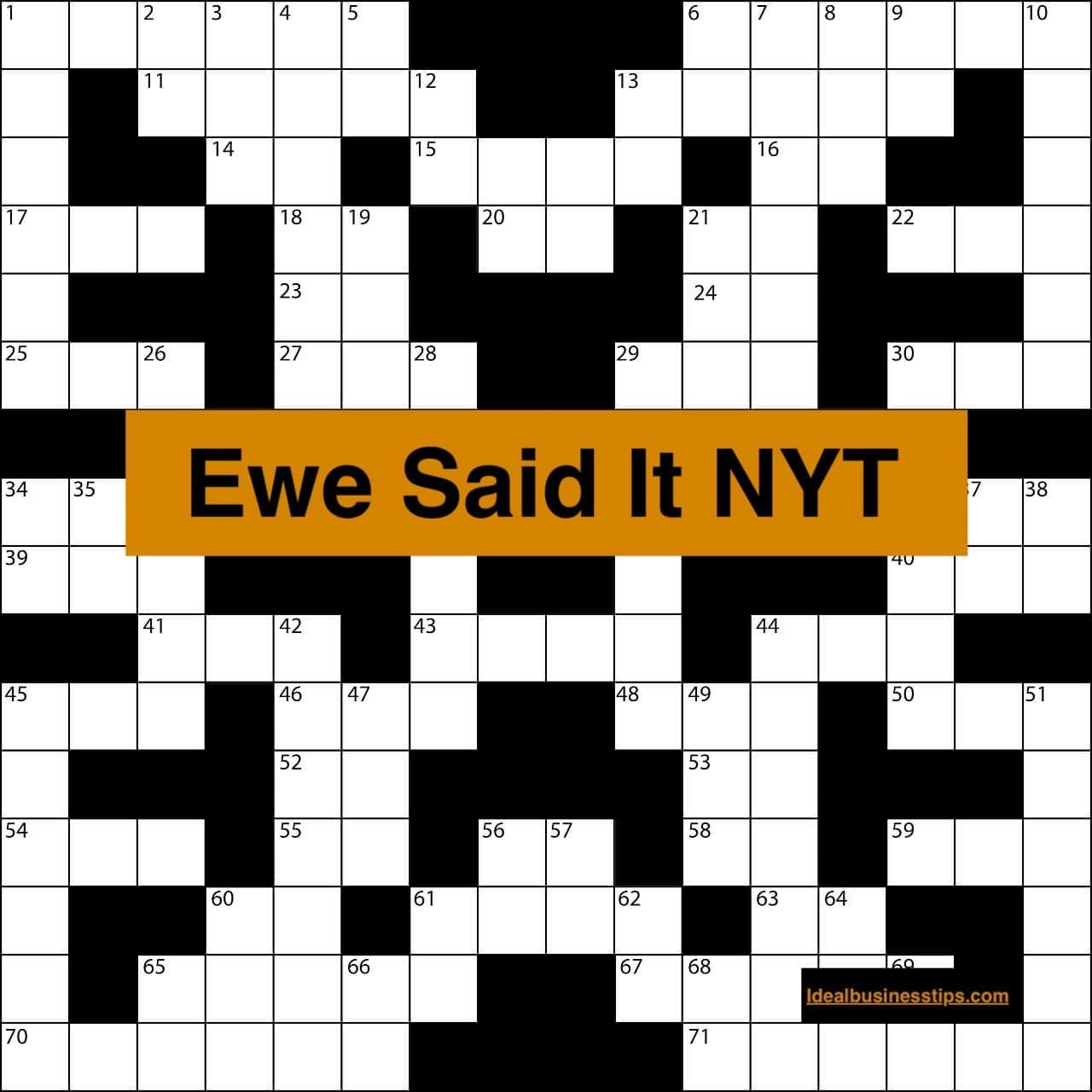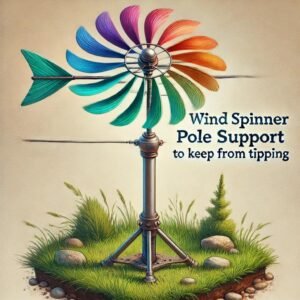Introduction: “Ewe Said It NYT” is a bit recent phrase type that people like to use nowadays. In order to comprehend all the nuances of such a powerful concept, it is crucial to know where it comes from. In this article, we will be trying to explain what “Ewe Said It NYT” entails, the history behind it, and determine its cultural implication in today’s society.
History of the “Ewe Said It NYT”
The source of the phrase is not quite verifiable. However, it is quite widespread, particularly on social networks. Still, the phrase rather amusingly combines humor and the acknowledgment of the profession’s ethical standards.
Why “Ewe Said It NYT” is Effective?
Cultural Impact
It has become part of the modern-day vocabulary as it portrays both esteem for and comedy in factual details. To come up with the phrase that means ‘actual news’ while at the same time playing with the idea of a well-known and highly regarded news outlet in an age of fake news suits many.
Social Media Influence
On such social media tools as Twitter and Instagram, “Ewe Said It NYT” can be seen in the memes and the comments sections. It is a way for the users to accept someone’s witty or perceptive remark, which accompanies approval and comedy.
Specifically Highlighted Responsibilities of the New York Time
NYT is one of the leading newspapers in the world and is admired for its adherence to professional standards and principles and investigative journalism. This is especially important to illustrate the fact the public turns to traditional media houses for credible information.
Combating Misinformation
Unfortunately, the modern world is filled with fake news. Therefore, slogans such as “Ewe Said It NYT “ are quite powerful. It motivates people to get the correct data and not trust fake sources of information.
Examples in Casual Talk
The phrase you can use is “Ewe said it NYT” if you want to express appreciation or concurrence with what has been said. For example, when a friend surprises you with a very wise statement, one can reply, “Ewe said it NYT” to encourage the friend in a comical manner.
Social Media Usage
When it comes to social media, the phrase is ideal for calling attention to ingenious remarks or tweets, for instance. They stiffly blend into your existence and spice up your interactions with the world where you live.
Staying Relevant
Like every other sector in life, language is a dynamic entity, and as such popular phrases evolve as well. The continued use will probably rely on the continued relevance of credible news feeds, and the ongoing appreciation of comedy.
Potential Variations
There may be a modification of the same phrase just as any other phrase that goes viral since it is a common phrase with the general meaning of ‘you said it New York Times. ’ These could include a link to other credible news sources or other forms of the wordplay.
Wordplay and Puns
Of the factors that make “Ewe Said It NYT” go viral it has to be noted that wordplay has scored big. Jokes based on the play on words have over time been used to execute humor since they are creative and can easily entertain. This is due to the catchy nature of the phrase that is established since the phrase is hard to forget due to how ‘we’ and ‘you’ sound almost identical.
Memorable and Catchy
Indeed, because of its repetitive and catchy nature, the phrase is easy to remember and is thus used commonly. In the context of the article, while the topic was popular and presented timely information, it was also noted that too long and complex phrases would not likely spread through the users’ feeds in the same way that ‘#hashtags’ would.
Effects of “Ewe Said It NYT” on Internet Communication
Encouraging Thoughtful Engagement
To ensure healthy debates, people should use the phrase “Ewe Said It NYT” when they are online. It conveys the message that the commenter has said something wise that required a response.
Building Community
Symbolic language and in-jokes bring people together and give a user an accurate perspective on what the social network is all about. In this sense, when people use the phrase, they are part of the religious-cultural context and the experience, producing a rapprochement between individuals.
Final Thoughts
I think that the fact of a rather simple and silly pun growing into a widely known phrase which can be used in any company is an example of the great power of words. It is here that one can identify and accept such approaches to better understand the dynamics of contemporary communication.
Conclusion
’’Ewe Said It NYT’’ is a lot more than mere words. It represents well the idea of integrating comedy while at the same time acknowledging and exercising the professionalism of a news reporter. In the midst of a world drowning in information, resonating phrases such as Ewe Said It NYT, meaning that words can indeed speak the truth.
The sampling of the ruminations of NYTimes readers has been presented as the ‘Ewe Said It NYT. ’ Some common questions regarding ‘Ewe Said It NYT’ are enumerated below.
FAQs
Q1. What “Ewe Said It NYT” means but I can tell you what each of those words signifies; ‘ewe’ is an archaic English term used in the Scottish region by females and it simply means ‘you’, ‘said’ means said, ‘it’ means it and ‘nyt’ means now.
A1. “Ewe Said It NYT’ meaning New York Times. They are employed to complement or give emphasis on something profound or humorous, as when giving credit to a reliable source.
Q2. Where did “Ewe Said It NYT” come from?
A2. The source of this phrase is unknown but it has become more common, especially in social networks. It is often employed in memes and comments beneath a fruitful post, a good joke, or any piece of text with insightful points.
Q3. Why does “Ewe Said It NYT” capture people’s attention?
The current position of the phrase is also captured in the fact that the ‘news source’ being referred to, ‘Fox News’, is actually a very popular channel. Evaluating it in terms of capturing many people’s attention online, reminds everyone in an age of fake news about the necessity of proper knowledge.
Q4. How can I properly incorporate the name of the event, “Ewe Said It NYT”?
A4. You can use “Ewe said it NYT” when you want to tell someone that you are satisfied with. For instance, if a friend comes up with a rather smart statement you can simply retort with ‘Ewe Said It NYT’ to express a concurrence while at the same time wanting to take a jab.
Q5. So, is “Ewe Said It NYT” only used on social media, or does it also appear in other unexpected environments of the newspaper?
A5. However, the context of the phrase is most often used on social media; nonetheless, people can tend to use it in spoken colloquial language.
Q6. Is the name “Ewe Said It NYT” allowable within the marketing campaign of the products the brands offer?
A6. Yes, brands can use such a catchy line. But, it is also necessary to use such phrases in the right context since using them frequently or in the wrong cultural context may be wrong.
Q7. Can one get tired of “Ewe Said It NYT”?
A8. Yes, like any slogan, there is the danger of its becoming cliché. If utilized very often it can end up rubbing off as commonplace and therefore not very effective.






